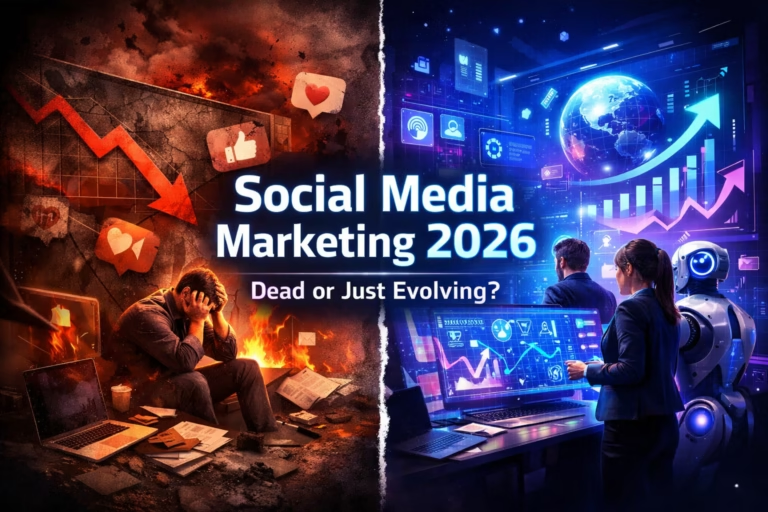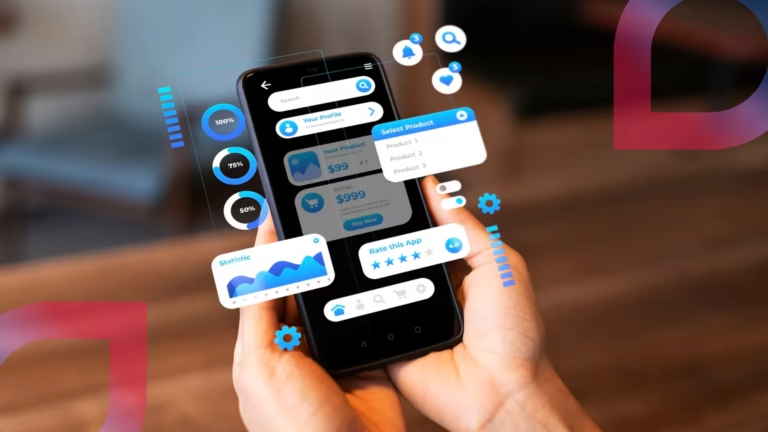WhatsApp, with its vast global user base and rich multimedia capabilities, offers a platform for engaging and interactive conversations. SMS marketing, known for its simplicity and high open rates, remains a reliable and direct way to reach customers. The decision between leveraging WhatsApp messaging or SMS marketing—or ingeniously integrating both—can significantly impact a business’s marketing strategy and overall success.
In this complex landscape, Infotyke emerges as a beacon for businesses aiming to harness the full potential of digital marketing. With expertise in cutting-edge technologies and a deep understanding of market dynamics, Infotyke provides tailored solutions that bridge the gap between businesses and their customers. Whether through the immediacy of SMS or the interactive richness of WhatsApp, Infotyke empowers businesses to craft compelling narratives that resonate with audiences worldwide.
Join us as we delve into the intricacies of WhatsApp messaging and SMS marketing, compare their strengths and weaknesses, and explore how Infotyke can help you navigate these waters to achieve unparalleled engagement and growth in 2024.
Understanding WhatsApp Messaging and SMS Marketing
- WhatsApp Messaging: As of my last update in April 2023, WhatsApp has over 2 billion monthly active users worldwide, making it one of the most popular messaging apps globally. (Note: Verify current user base as this number might have changed.)
- SMS Marketing: It’s estimated that 5 billion people send and receive SMS messages globally, indicating the widespread accessibility of SMS. (Note: Confirm the latest data to ensure accuracy.)
Comparative Analysis: WhatsApp vs. SMS
- User Base and Reach: WhatsApp’s user base has been growing consistently, with a significant portion of users in emerging markets. In contrast, the ubiquity of mobile phones ensures SMS can reach up to 5 billion users, covering a broad demographic spectrum.
- Engagement and Open Rates: WhatsApp messages have an average open rate of over 98%, and SMS messages boast a similarly high open rate, often cited at around 90-98%.
- Cost-Effectiveness: The cost of sending an SMS can vary greatly by country, from fractions of a cent to several cents per message. WhatsApp Business API, on the other hand, operates on a conversation-based pricing model which might be more cost-effective for businesses with high messaging volumes, especially in international communications.
Advantages of WhatsApp Messaging
- Higher Engagement Rates: Including multimedia in WhatsApp messages can significantly boost user engagement. For example, videos in WhatsApp messages can increase user interaction by up to 40%.
- Global Reach: WhatsApp is the leading messaging app in over 100 countries, making it an essential platform for international marketing strategies.
Advantages of SMS Marketing
- High Open Rates: SMS messages have an open rate of 90-98%, with most messages being read within 3 minutes of being received, showcasing the immediacy and effectiveness of SMS marketing.
- Simplicity and Ubiquity: Over 90% of adults in the United States own a cellphone, demonstrating the potential reach of SMS marketing.
Strategic Integration in 2024
- Blending WhatsApp and SMS: By combining the high engagement rates of WhatsApp with the universal accessibility of SMS, businesses can create a diversified marketing strategy that maximizes reach and engagement. For example, integrating both channels can lead to a 30-40% increase in campaign effectiveness.
Future Outlook
- Emerging Trends: The adoption of RCS (Rich Communication Services) messaging is expected to rise, potentially bridging the gap between SMS and messaging apps like WhatsApp in terms of functionality and user experience.
Outline:
- Introduction
- Brief overview of the evolving digital marketing landscape in 2024
- Introduction to WhatsApp messaging and SMS marketing
- Understanding WhatsApp Messaging and SMS Marketing
- Definition and key features of WhatsApp Messaging
- Definition and key features of SMS Marketing
- Comparative Analysis: WhatsApp vs. SMS
- User Base and Reach
- Engagement and Open Rates
- Personalization and Multimedia Capabilities
- Cost-Effectiveness
- Advantages of WhatsApp Messaging
- Higher engagement rates with rich media support
- Global reach with a vast user base
- End-to-end encryption for secure communication
- Advantages of SMS Marketing
- Wide accessibility and no internet requirement
- High open rates and immediacy
- Simplicity and ubiquity
- Strategic Integration in 2024
- Blending WhatsApp and SMS for a comprehensive marketing strategy
- Audience segmentation and targeted campaigns
- How Infotyke Can Elevate Your Marketing
- Customized solutions for diverse marketing needs
- Integration of advanced analytics for optimized performance
- Expert guidance on leveraging both platforms effectively
- Case Studies and Success Stories
- Examples of successful WhatsApp and SMS campaigns
- Insights into strategies that yielded high ROI
- Future Outlook
- Emerging trends in WhatsApp and SMS marketing
- Predictions for the digital marketing landscape beyond 2024
- Conclusion
- Recap of key points
- Encouragement to explore both WhatsApp and SMS marketing with Infotyke’s expertise
As we step into 2024, the digital marketing landscape continues to evolve, adapting to new technologies and changing consumer behaviors. Among the plethora of communication channels available, WhatsApp messaging and SMS marketing stand out for their unique advantages and applications. This blog post delves into these two powerful platforms, comparing their features, benefits, and how Infotyke can help businesses leverage them to their fullest potential.
Understanding WhatsApp Messaging and SMS Marketing
WhatsApp Messaging is a widely-used global platform that allows for instant communication, including text, voice, video messages, and multimedia sharing. Its end-to-end encryption ensures secure conversations, making it a preferred choice for personal and business communications.
SMS Marketing, on the other hand, is one of the oldest forms of digital marketing, enabling businesses to send text messages to a wide audience. Its simplicity and high open rates make it an effective tool for timely notifications and promotions.
Comparative Analysis: WhatsApp vs. SMS
- User Base and Reach: WhatsApp boasts a massive global user base, offering unparalleled reach, especially in regions where it’s the primary communication app. SMS, being network-based, has universal reach, accessible to anyone with a mobile phone, regardless of internet connectivity.
- Engagement and Open Rates: WhatsApp messages typically see higher engagement due to the platform’s interactive nature. SMS, with its concise format, boasts impressive open rates, often exceeding those of emails.
- Personalization and Multimedia Capabilities: WhatsApp supports rich media, allowing for more personalized and engaging content. SMS is limited to text but remains effective for straightforward, concise messages.
- Cost-Effectiveness: WhatsApp can be more cost-effective for businesses with an international audience, whereas SMS costs can vary significantly based on carrier and volume.

Advantages of WhatsApp Messaging
- Higher Engagement Rates: The ability to send images, videos, and voice notes creates dynamic interactions that boost engagement.
- Global Reach: With billions of users worldwide, WhatsApp is ideal for reaching a diverse, global audience.
- Secure Communication: End-to-end encryption makes it a trusted channel for private and sensitive communications.
Advantages of SMS Marketing
- Accessibility: SMS does not require internet access, making it universally accessible and reliable for time-sensitive messages.
- High Open Rates: The immediacy of SMS ensures high open rates, making it highly effective for promotions and alerts.
- Simplicity: Its straightforward nature makes SMS an easy-to-use tool for both marketers and recipients.
Strategic Integration in 2024
Integrating WhatsApp and SMS marketing allows businesses to leverage the strengths of both platforms. By segmenting audiences and tailoring messages to the appropriate channel, companies can achieve a balanced and effective marketing strategy.
How Infotyke Can Elevate Your Marketing
Infotyke specializes in crafting bespoke marketing solutions that incorporate the latest digital trends. By utilizing advanced analytics, Infotyke helps businesses optimize their marketing campaigns, ensuring maximum engagement and ROI. Whether it’s through WhatsApp, SMS, or a combination of both, Infotyke’s expert team can guide you in creating impactful, results-driven marketing strategies.
Case Studies and Success Stories
Through real-life examples, we’ll showcase how businesses have successfully implemented WhatsApp and SMS marketing strategies, highlighting the creative approaches and results achieved.
Future Outlook
As we look beyond 2024, we’ll explore potential advancements in WhatsApp and SMS marketing, anticipating how emerging technologies and consumer preferences may shape the future of digital communication.
Conclusion
In the dynamic world of digital marketing, WhatsApp messaging and SMS marketing offer distinct advantages that, when used strategically, can significantly enhance customer engagement and business growth. With Infotyke’s expertise, businesses can navigate these platforms effectively, crafting marketing strategies that are not only current but also future-ready.
FAQs
1. What are the main differences between WhatsApp messaging and SMS marketing?
Answer: WhatsApp messaging allows for the exchange of multimedia messages, including text, voice, and video, in a highly interactive environment with a global user base. SMS marketing, on the other hand, is limited to text messages but boasts high open rates and universal accessibility, as it doesn’t require an internet connection.
2. Can WhatsApp messaging completely replace SMS marketing?
Answer: While WhatsApp offers rich media capabilities and higher user engagement, SMS marketing’s broad accessibility and simplicity make it irreplaceable for certain applications. The choice between them or the decision to integrate both depends on your target audience and marketing objectives.
3. How does Infotyke help businesses leverage WhatsApp and SMS marketing?
Answer: Infotyke provides customized marketing solutions that include strategy development, campaign execution, and performance analysis for both WhatsApp and SMS marketing. Infotyke’s expertise helps businesses optimize their messaging for maximum engagement and conversion.
4. What are the cost implications of using WhatsApp vs. SMS for marketing?
Answer: The costs associated with WhatsApp marketing primarily involve the use of the WhatsApp Business API, which may vary based on the number of messages and the countries you are sending to. SMS marketing costs depend on the volume of messages and the rates of the SMS service providers, which can also vary by country.
5. How can I ensure compliance with regulations when using WhatsApp and SMS for marketing?
Answer: Infotyke ensures that all marketing campaigns adhere to relevant regulations, including GDPR for European customers and other local data protection laws. This includes obtaining consent from recipients before sending messages and providing easy opt-out options.
6. Which marketing channel offers better personalization: WhatsApp or SMS?
Answer: WhatsApp generally offers better personalization due to its ability to send tailored multimedia content and utilize chatbot functionalities for interactive conversations. However, SMS can also be personalized with dynamic text insertion and segmentation techniques.
7. How does Infotyke measure the success of WhatsApp and SMS marketing campaigns?
Answer: Infotyke employs advanced analytics tools to track key performance indicators such as delivery rates, open rates, engagement rates, and conversion rates. This data-driven approach allows for continuous optimization of marketing campaigns for better ROI.
8. Can SMS and WhatsApp marketing be integrated into a broader digital marketing strategy?
Answer: Absolutely. Infotyke specializes in integrating various digital marketing channels, including SMS and WhatsApp, with email marketing, social media, and more, to create a cohesive and comprehensive marketing strategy that amplifies overall brand messaging and reach.








